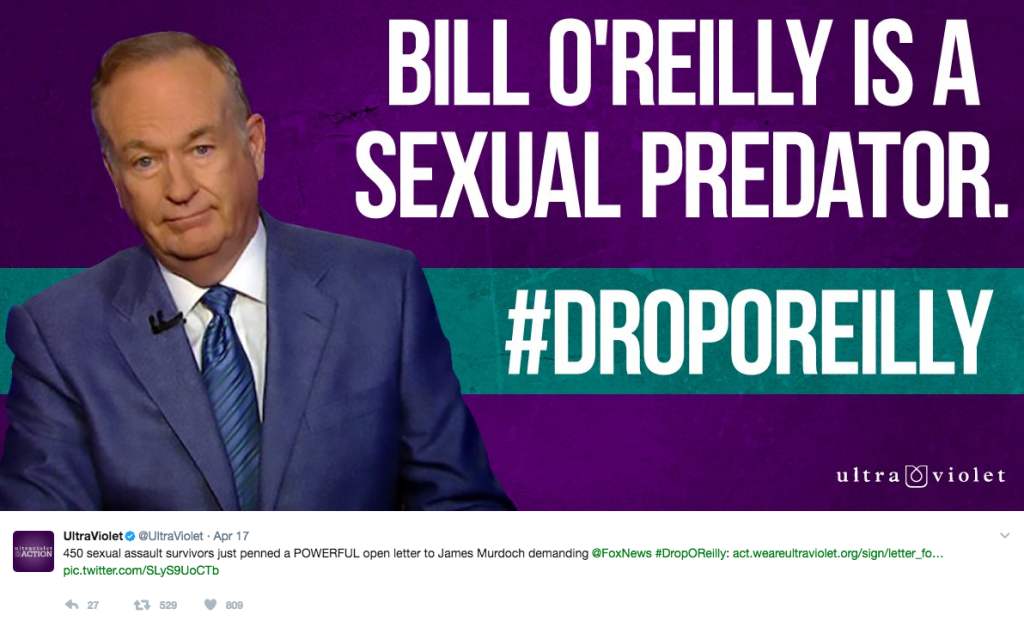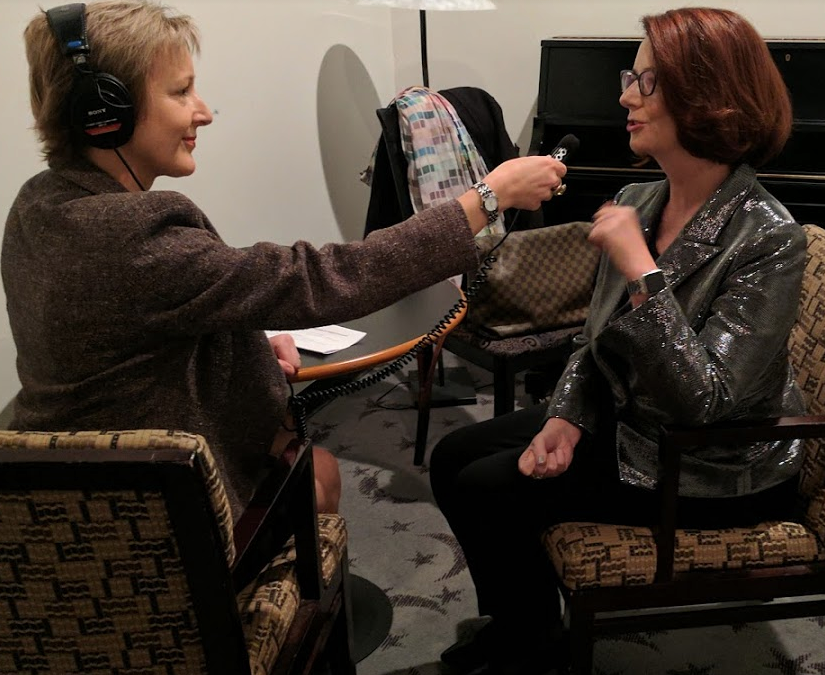What can Uber and Fox News do to change their hostile work environment for women? And how can organizations create a productive atmosphere where men and women thrive? Alison van Diggelen, host of Fresh Dialogues sat down with Julia Gillard, the 27th Prime Minister of Australia to get her insights. Gillard got the world’s attention after making an impassioned speech to parliament, detailing the sexual harassment she endured as prime minister. Her Misogyny Speech has empowered many women and a provided a wakeup call for “unenlightened” men.
“I will not be lectured on sexism and misogyny by this man…I was personally offended by the leader of the opposition cat-calling: ‘if the Prime Minister wants to, politically speaking, make an honest women of herself ‘ and when he went outside the front of parliament and stood next to a sign that said ‘Ditch the witch’…(and) a sign that described me as ‘A man’s bitch’, I was offended by sexism, misogyny every day from this leader.” Julia Gillard, 27th Prime Minister of Australia
The BBC World Service program, Business Matters aired my interview with Julia Gillard last week, and we had a lively discussion about the steps companies and organizations can take to tackle sexism. This topic is especially timely as news broke this week that Bill O’Reilly has been fired from Fox News due to a sexual harassment scandal. Is the tide finally turning, thanks to tech augmented consumer pressure?
“Company reputation and consumer pressure is actually putting the spotlight on businesses to change behavior, and women can work with that to put a spotlight on work practices in their business,” Julia Gillard.
Did Julia Gillard anticipate Bill O”Reilly being fired?
Listen on the BBC Podcast (@26:40) or to the short clip below:
Here are highlights from our conversation:
I began by asking her if there’s anything she’d add to her speech in today’s work environment…
Julia Gillard: It was coming from a place of frustration and mounting anger about the way in which gender has intersected with my prime ministership and some of the many sexist jibes and treatment I had to put up with. For many women, it’s come to represent something that answers their own frustrations. A lot of women come up to me and say: “this happened to me at work. I wake up at 3 in the morning and really wish I’d said X, Y and Z; and then I’ve watched your speech and it’s given me some heart that I really should call out sexism when I see it.”
Alison van Diggelen: Here in Silicon Valley, women in tech are in a minority. In some instances they’re facing hostile environments at work. Do you have any specific advice for them?
Julia Gillard: What’s interesting about the Silicon Valley environment is: company reputation and consumer pressure is actually putting the spotlight on businesses to change behavior, and women can work with that to put a spotlight on work practices in their business; and put a spotlight more generally on that fact that not enough women study and come through the STEM stream… We do want to be encouraging more girls to go into the sciences, engineering, into coding, computer science and new technology because that’s where so much of the future is going to lie.
Alison van Diggelen: Uber has been accused of having a hostile environment for women. If you were on the board of Uber, your advice to them?
Julia Gillard: I’d give the same advice to any company, whether it already had a public problem or not. First look at hiring practices and see whether there’s any gender bias, even unconscious…Look at promotion practices, it could be managers valuing time sitting at the desk rather than results, which would count against women who also have family responsibilities. I’d be setting policies, practices, cultural norms about treating everyone with respect. No practices of going on boys’ nights out where women are excluded.
There’s a range of things you can do from structural biases, actual policies to cultural influences. You’ve got to be thoughtful at every level and make it easy for women to say something’s wrong here, all sorts of ways of raising a complaint, including putting in complaints with anonymity, so women can get a spotlight on issues without feeling they themselves are at risk.
Roger Hearing: Asit Biswas (in Singapore), in your experience, in the areas of government and academia, do you feel a lot of progress has been made?
Prof Asit Biswas: There has been some progress, but it’s not enough. In academia, the number of university presidents who are women, I can count on two hands…there’s a great deal of glass ceiling…In India, I was surprised to see the culture has deteriorated: there’s more harassment, not much being done about it.

Alison van Diggelen: I do want to go back to Julia Gillard’s point about consumer pressure. Boycott movements* (and demonstrations) are happening against Fox (News) because of accusations of sexual harassment…
Roger Hearing: We should explain, Bill O’Reilly…There have been allegations against him and it’s emerged that money has been paid to those people, though he says the allegations have no merit.
Alison van Diggelen: Exactly. There are boycott movements shining a light on sexism and bad behaviors. Companies can’t get away with it like they used to. Tech is playing a role in exposing these bad behaviors and a lot of companies are aware of it and are trying to close the income gap and improve the retention rates of women, and making sure that all men become enlightened men and treat women with the respect that they deserve.
*Mercedes-Benz – one of the first major sponsors to drop Bill O’Reilly – said in a statement: “The allegations are disturbing and, given the importance of women in every aspect of our business, we don’t feel this is a good environment in which to advertise our products right now.”
This interview took place in the green room of The Flint Center in Cupertino. Big thanks to Dick Henning, founder of the Foothill College Celebrity Forum Series for the invitation backstage.




